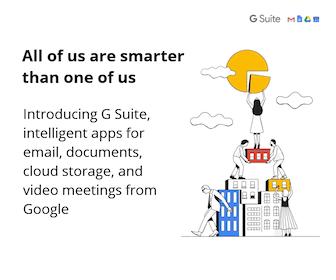In Japan, there’s a word for working too hard. Karoshi, or “death by overwork,” leads to more than 1,000 deaths per year among Japanese employees.
In the United States, the picture isn’t much brighter. In fact, many U.S. workers consider a relentless devotion their job a necessity for success. Many even take pride in their workaholic tendencies.

Workaholism is most common among millennials, who have encountered a perfect storm of shifting workplace expectations, technological advancements, and economic uncertainty. My clients struggle with this dynamic all the time, whether they’re creative entrepreneurs, traditional corporate employees, or startup founders.
Recently a client told me that she couldn’t imagine taking an entire week off. While a vacation sounded great, it didn’t seem realistic. Her co-workers couldn’t manage everything in her absence. More important, she couldn’t stomach coming back to an overflowing inbox and mountain of to-do’s after time off. Easier to stay put and stay on top of things, she rationalized. Meanwhile, she was so stressed out that she could barely concentrate. Her health was suffering as a result of clocking long hours with no respite. Heart palpitations, insomnia, weight gain — the works. Plus, although her company said it supported work-life balance, colleagues frequently taunted those who dared to step away from office even for a single afternoon.
Sound familiar?
From our partners:
Workaholism isn’t an isolated problem. It’s an epidemic in the United States today, one that’s making us exhausted and unproductive in our jobs. It’s leaving us unhappy and unfilled in our lives outside the office, too.
Millennials Aren’t Lazy—They’re Obsessed with Work
Workaholics are everywhere. In a recent study of full-time employees by Project:Time Off, 29 percent of respondents identified as a work martyr, or someone who feels shame in taking time off. What’s more striking? Nearly half the millennials surveyed said they want their boss to perceive them as a work martyr.
These statistics stand in sharp contrast to common stereotypes of millennials as “lazy, entitled narcissists.” In fact, millennials are more likely to:
- Have unused vacation time
- Log 50-, 60-, or 80-hour weeks
- Respond to emails, Slack messages, and texts around the clock
Many of my clients say they’re “always on” and feel an incessant need to be productive. This pressure follows them wherever they go — at home with family, to the gym, on weekends.
Workaholism Is Killing Your Career and Our Culture
The consequences of workaholism are far-reaching.
On a Personal Level
Work martyrs have increased levels of anxiety and depression and a host of physical health problems. The impact trickles down to families, too. Work martyrs are more likely to get divorced and have poor friendships.
A grueling schedule doesn’t leave time or space for other interests. As a result, work martyrs emotionally overinvest in their jobs. They have trouble separating their personal worth from what they do for a living. And because they’re burned out, they may not advance as quickly as they would like, further hurting their self-esteem.
On a practical level, working constantly also has no net benefit to your career. In fact, people who take fewer vacation days are actually less likely to get a raise or receive a bonus than their colleagues who make time for rest.
For Companies
Organizations also have to contend with the infectious, destructive nature of workaholism. Productivity drops when people work excessive hours. Many employees also admit to “vacation shaming” co-workers, which is contributing to a rise in hostile workplaces. Stress is contagious and doesn’t serve morale, either.
Retention becomes an issue as the best and brightest leave the workforce to recoup their lives. Diversity suffers as well. An all-encompassing career is difficult to balance alongside caregiving duties, which makes things difficult for many women, people of color, and baby boomers. By fostering workaholism, companies miss out on an opportunity to strengthen their teams (and profits) with diverse leadership.
Being Busy Isn’t a Badge of Honor: The Making of Our Exhausted Union
We’re a nation built on hard work. But now we’re slowly being brought down by the our dedication to industriousness. How did we end up here?
First of all, there’s no question that we equate being busy with being productive. By creating workplaces where people are encouraged to answer emails at all hours of the day or night, companies shoulder some of the blame for the rise of workaholism. In fact, a recent Gallup poll revealed that the average adults checks their phone hourly, if not every few minutes.
One fascinating study found that many top performers fake long hours to meet expectations. They simulated work martyrdom to preserve their reputation as a model employee. Those who chose honesty and instead formally requested lighter workloads were denied or punished for it, according to the study.
Generational factors are also at play. Millennials witnessed their parents lose jobs, homes, and a life’s worth of retirement savings during the Great Recession. Many of us graduated college with high hopes, only to enter a dismal employment market. Understandably, fears about job security linger. That can lead to overcompensating: We go above and beyond trying to prove we’re irreplaceable because we can do more than anyone else.
And in this age of ever-increasing chaos, pursuing meaningful work is important to feel stable. It’s no longer just about paying the rent. We all want to make a contribution and do work that feels like a core part of who we are. It’s great in theory, but in practice it can often go astray.
Restoring Balance: Where Do We Go from Here?
The obsessive way we work clearly isn’t working, nor is it sustainable or healthy. Stress takes a toll on us emotionally, while factors like turnover and lack of diversity cause companies to fall behind. Despite these facts, many of us still consider work martyrdom to be a necessary, desirable badge of honor.
Bottom Line:
“Work martyrdom doesn’t help you or your company grow. It’s time we let go of the obsession. In the process, we can change workplaces and ourselves for the better.”
This feature originally appeared in Medium.

















